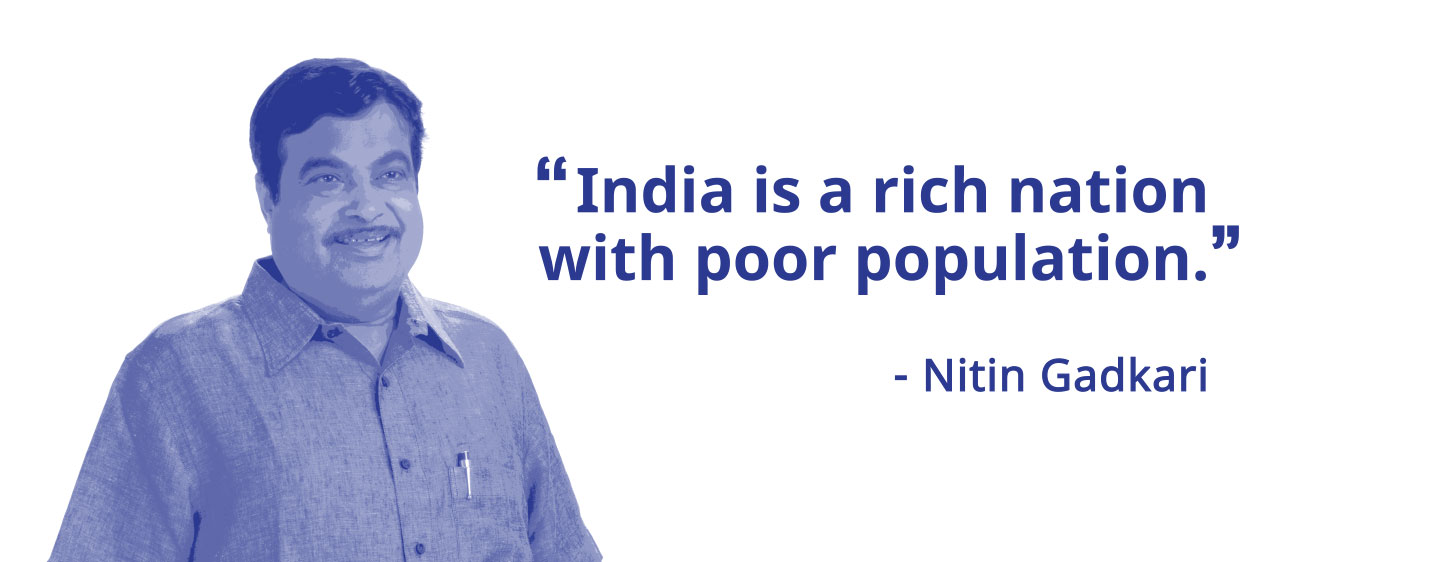"We are a rich nation with a poor population. Those who ruled benefitted their own families." Return of Public Wealth via Dhan Vapasi will end this.
The Union Minister for Road, Transport and Highways recently stated – “We are a rich nation with a poor population. Those who ruled benefitted their own families. Prime Minister gave birth to a Prime Minister, Chief Minister gave birth to a Chief Minister and so on… Democracy is close to being non-existent. We have to change this.”
Unlike the regular political speeches, the minister’s words have struck a chord. Since independence, India’s rulers have become rich, but not its people. The government of India is the largest owner of wealth in India. The central government controls vast resources at its disposal including thousands of hectares of public lands, lakhs of crores worth of minerals, offshore resources, and through its stake in more 300 Central Public Sector Undertakings. In addition, state governments have their own share of wealth.
The people of India collectively own wealth this “public wealth”, which is in the form of public lands, the minerals, public sector corporations, spectrum, etc. The government is the trustee of the wealth of India for the benefit of the people. Even as our wealth should be used for the benefit of the people as per the constitutional mandate of the government, in seven decades since independence, we have barely derived any benefits from our public wealth. Instead, this wealth has continuously been abused, misused, or underused by politicians, bureaucrats, and their cronies.
Nayi Disha’s estimates suggest that the public wealth of India is over ₹1500 lakh crore which is equivalent to over ₹50 lakh for every Indian family of five people. Given the failure of the Indian state to manage the public wealth for the benefit of people, it is time for us to demand that this wealth is returned to its rightful owners in form of Dhan Vapasi.
It will allow the government to focus on its core functions such as upholding the rule of law, providing public infrastructure, and maintaining national defense. These essential functions of the state have been mostly neglected since independence. India’s state machinery is woefully inadequate to maintain law and order. Only with limited and strong governments at centre and local levels, we will be able to live in a free and prosperous country that our forefathers fought for.
Dhan Vapasi will make this a reality by selling the surplus public assets, that are currently lying idle with the central government and distributing the proceeds amongst the people of India, its rightful owners.
India still has the second largest population of poor people living under the poverty line with elevated levels of inequality. According to the Tendulkar Committee Report, 22% of Indians live below the poverty line. The wealth to the people, which is often taken from them by unjust means, must be returned to rectify the mistakes of the past. It is the most transparent, efficient, and accountable solution for putting India on an irreversible path to prosperity.

